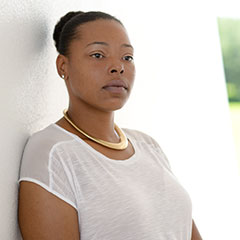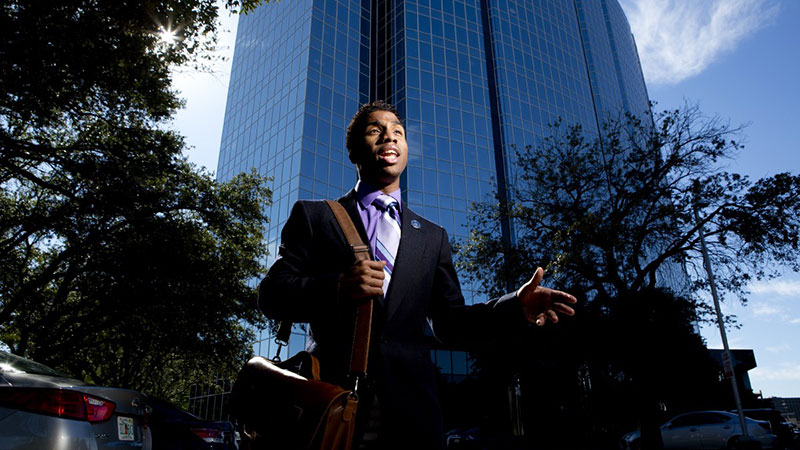
A guest post by Jimmieka Mills
Uncertainty is part of college: We’re unsure about what major to choose, about homework and class assignments. We’re trying to figure it all out at once. But the worst stress comes from being unsure whether you’ll have a home or enough food.
This is a topic that can’t be understood just from the numbers, though the numbers are certainly bad enough:
- More than a third of university students, 36 percent, had faced recent housing insecurity, and a similar number had difficulty getting food, according to a national survey of 43,000 students at 66 institutions in 20 states.
- The survey by the Wisconsin HOPE Lab, “Still Hungry and Homeless in College,” found 9 percent of university students and 12 percent of community college students were homeless.
“I’ll catch a friend’s floor or couch—wherever I can lay my head,” said Brandon Etienne, a senior at Sam Houston State University in Huntsville, Texas. “Wherever I’m going to go to sleep at, wherever I can find a place to lay my head, that’s where I’m at.”
Brandon told me he wasn’t expecting this when starting out to earn a bachelor’s degree in business: “I pictured the normal college life: lecture halls, meeting new people, and enjoying being away from home.”
But the basketball scholarship he expected from Texas A&M University-Kingsville did not materialize. His family tried to help.
“It was a bind for them because they’re trying to live at the same time,” he said. “We aren’t rich, so they’re struggling at the same time that I’m struggling.”
He moved off campus to save money, but things got even worse for his family.
“You’re seeing cars repossessed,” Etienne said. “It got to a point where sometimes they couldn’t make it, and I had to deal with the fact that I may not have a home to stay in for a while.”
He transferred to Sam Houston State to cut expenses for his senior year and began sleeping wherever he could.
His story isn’t unique. But to reduce this struggle to a “rite of passage,” or “couch surfing,” as some do, minimizes the terrible impact that lack of housing has on students. Performance in class suffers: With so much uncertainty about food and shelter, it’s hard to focus on courses, remain organized, and stay on schedule.
There are things we can do. The Wisconsin HOPE Lab report urges students to take action for themselves. The report directs them to the College and University Food Bank Alliance, noting that many of those food banks were started by students. Students also can support each other—by sharing meal card swipes, and by educating each other about the need for resources.
But colleges, universities and policymakers also need to step up: “Even while facing financial constraints, colleges and universities can act to ensure that their students’ basic needs are met,” the HOPE report says.
“Addressing food and housing insecurity helps promote positive student development, retention and graduation, and is closely aligned with institutional missions focused on both access and excellence.”
The report also recommends more research into the problem, coordination of on- and off-campus resources to better help those in need, and partnering with community agencies and programs.
There’s much more in the HOPE report, but the big message for me is this: We can’t erase the uncertainty and suffering these students face without a lot of work from everybody.
As with so many issues today, we should start by being honest: Housing and food insecurity isn’t just their problem. Helping these students succeed will produce the talented workforce our nation needs. When we help them, everyone wins.

